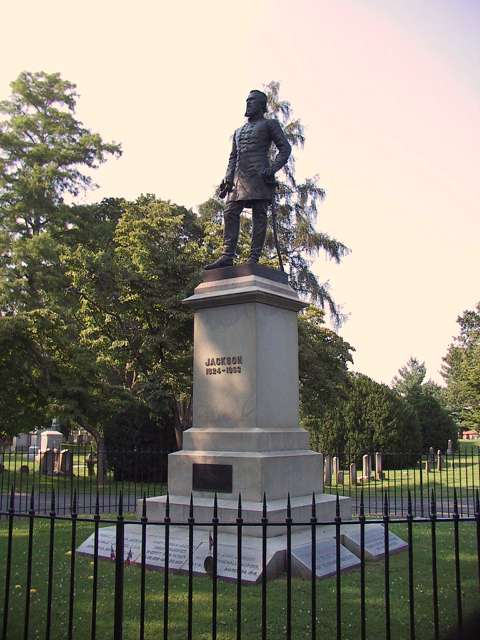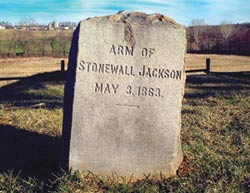
Stonewall
Jackson is buried in Lexington, Virginia, near the Virginia Military
Institute, where he taught before the Civil War. But his arm,
which he lost at Chancellorsville, where he received the wounds that
killed him, is buried near that battlefield.
When Jackson's shattered arm was cut off after the battle it was
thrown onto a pile of amputated limbs, as was customary, but his
chaplain decided to retrieve it and he took it to the nearby farm of a
relative, who buried it in the family plot. Eventually a small
stone marker was erected over its final resting place.

The grave can be visited today, but it's not easy. When I toured
the Chancellorsville battlefield two summers ago, with some relatives,
we had to park at a gate about a mile from the cemetery and walk to the
grave. My eighty year-old mom was along, and she made the trek
with the rest of us, in the hot Virginia sun.
The cemetery was beautiful — a small fenced-in plot on a knoll
overlooking cornfields, shaded by old trees. There was no
particular emotion associated with visiting the site. An arm is a
tool. It was like visiting the grave of Stonewall Jackson's
sword. It was the walk with family that was moving — and
surreal, like the Civil War itself. We Americans are going to
take up arms and kill each other in great numbers, they said back
then. We are going to make a pilgrimage to the grave of Stonewall
Jackson's arm, we said generations later. Somehow it all made
sense. I kept thinking of Jackson's famous last words:
Let us cross over the river and rest under the shade of the trees.
There are some mysterious, unexplainable journeys that just have to be made.
